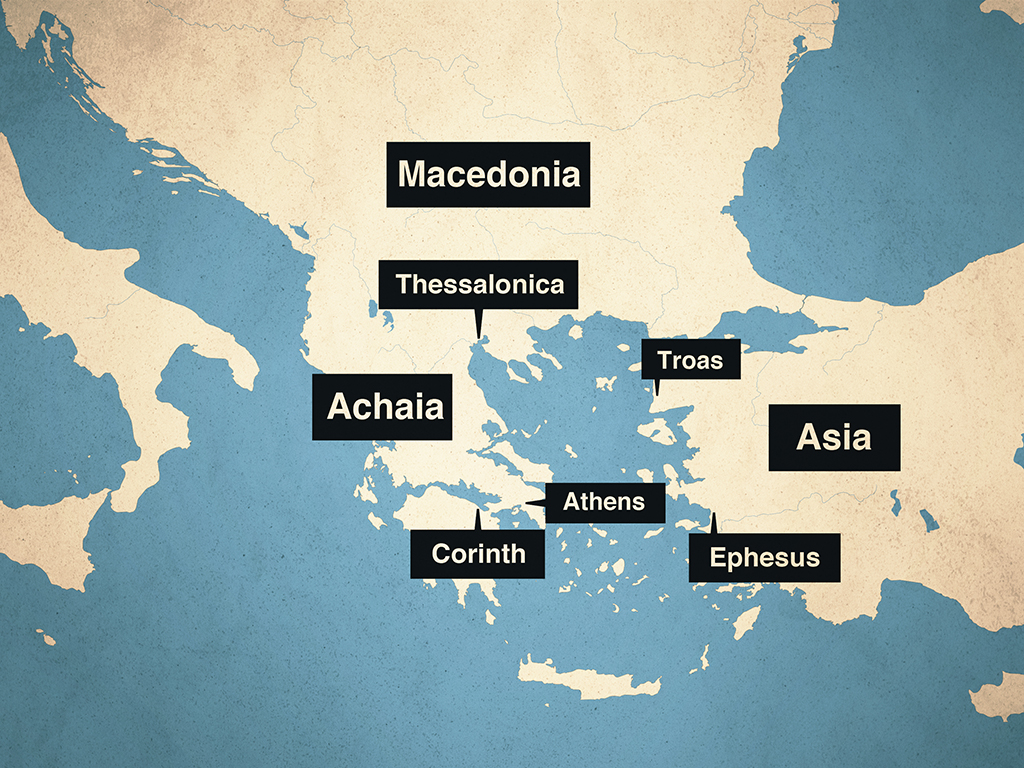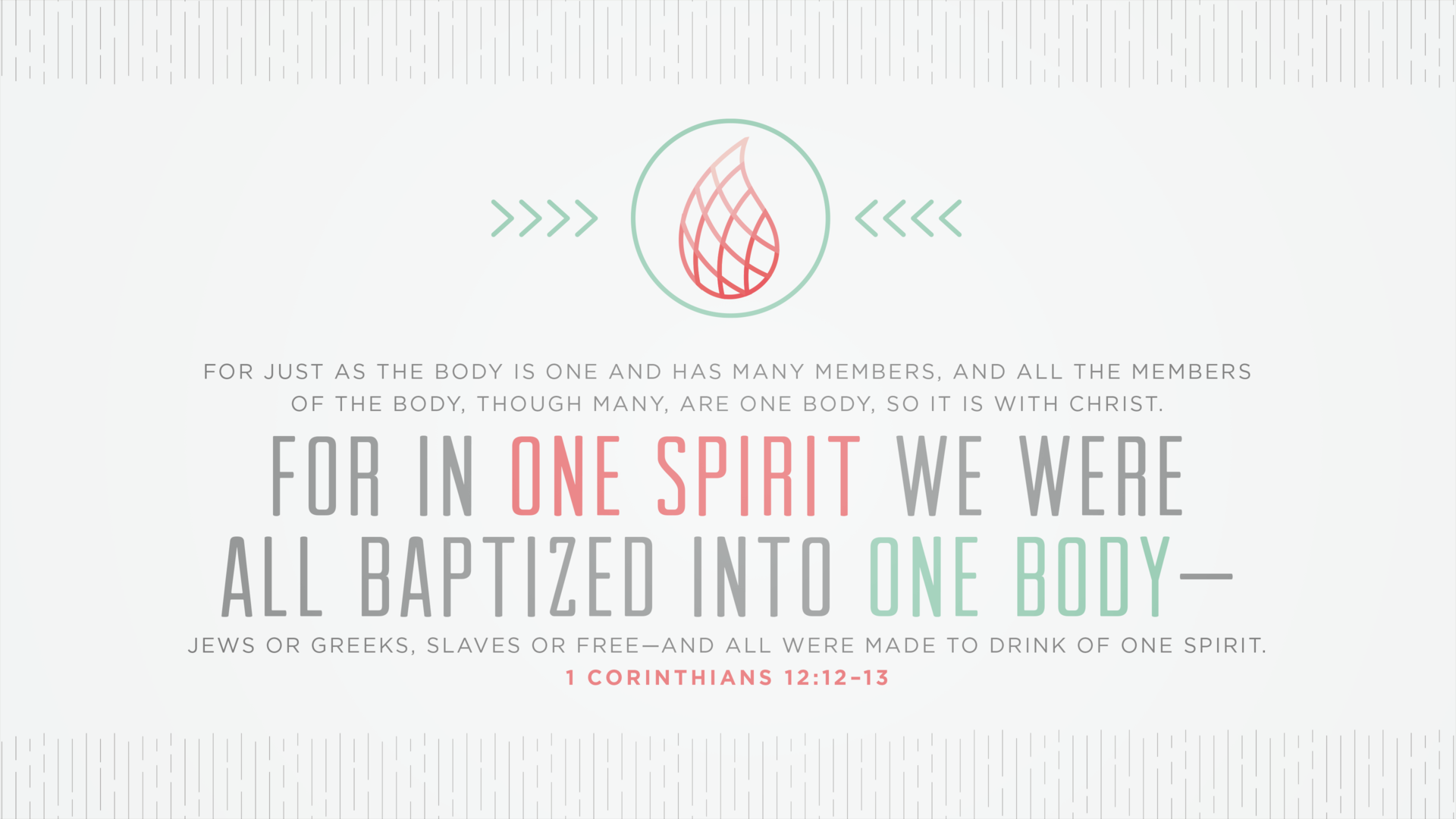Often, when we talk about the early church, we’re tempted to idealize it. But that’s before you get to 1 and 2 Corinthians—which were written to arguably one of the most dysfunctional churches in the New Testament. Then you’re forced to ask yourself, “Who are the Corinthians and what in the world was going on with their church?”
Fair question.
Paul planted a church among the Corinthians in Acts 18. Then he wrote a series of letters to help them overcome disunity, immorality, and false teaching that had threatened to destroy the church and inhibit the Christian witness in the area.
We’ll dig more into that. Keep reading.
- Who were the Corinthians in the Bible?
- What were the problems in the church in Corinth?
- What were the main messages to of Paul’s letter to the Corinthians?
- Digging deeper into 1 and 2 Corinthians
Who were the Corinthians in the Bible?

Acts 18 tells the story of Paul starting the church in Corinth—one of the most influential cities in the Roman world. Sitting in the neck of a narrow isthmus between the Corinthian Gulf and the Aegean Sea, it was an important center for commerce and transportation throughout the Mediterranean region.
Because it was such an important commercial city, Corinth had a cosmopolitan feel. Many of its inhabitants reflected the loose morals and materialistic outlook one might expect from such a city.
Notes in the Life Connections Study Bible described Corinth like this:
In this wealthy young city, excess seemed to be the norm. The city was stocked with art purchased from around the Roman Empire. It became a center of philosophy, though apparently few citizens were seriously interested in studying philosophy, preferring rather to listen to stirring orations on faddish topics delivered by the city’s numerous itinerant philosophers. There were many pagan temples and much immorality in Corinth.1
Paul arrived in this booming, rowdy port city upon leaving Athens, where he’d had a somewhat rocky reception by the Greek thinkers at the Areopagus (cf. Acts 17:16–34, particularly vv. 32–34).
Corinth had a reputation for loose morals. In fact, The Holman Bible Handbook notes that the Greeks had invented a word to describe living an immoral life—Corinthianize.2
In Corinth, Paul meets fellow tentmakers Priscilla and Aquilla, and stays with them as he does his missionary work. He first preaches in the synagogue (as was his custom) but faced strong resistance (Acts 18:6). He then turns his evangelistic focus to the non-Jews (or Gentiles), where he found considerably more fruit.
Paul stayed in Corinth for a year and a half, teaching God’s Word to the new converts. Those new believers became the church at Corinth, to whom Paul wrote his two New Testament letters.
Scholar D. R. De Lacey says it’s likely that two groups of Corinthians made up the church.3
First, Paul probably had brought some (though likely not many) Jewish converts from the synagogue. Plus, of course, others were Gentile converts Paul reached from this diverse community.
What were the problems in the church in Corinth?
The problems we know about within the Corinthian church we’ve gleaned from the issues Paul addressed in 1 and 2 Corinthians. Those issues included:
Disunity
In 1 Corinthians, we learn that the Corinthian church was split among various factions, seemingly between Paul, Apollos, Cephas (or Peter), and Jesus (1 Cor 1:10–17; 3:1–9). Allegiance to these factions was causing internal fighting within the church.
Disputes within the Corinthian church had gotten so out of hand that they had begun to take those disagreements to the pagan courts (cf. 1 Cor 6:1–11) to find a resolution.
Another source of disunity came in how some members of the Corinthian church seemed to elevate certain spiritual gifts (especially speaking in tongues) over other gifts (cf. 1 Cor 12–14). Corinthian church members were also fighting over whether to eat food that had been sacrificed to idols (1 Cor 8).
Immorality
In 1 Corinthians 5:1–13, Paul says he’d heard reports of a Corinthian church member sleeping with his father’s wife. Paul was disgusted by the behavior that he said was “not even tolerated among the Gentiles.” While his concern was with the specific immorality, Paul chided the leadership for not addressing the sin in the church’s midst.
Bad doctrine
The Corinthian church battled several theological problems. The most important was false teaching about the resurrection. While it’s not clear exactly what false teachers were saying about the resurrection, it’s likely that they were denying the reality of a bodily resurrection. Greek philosophy, particularly Gnosticism, flourished in the area in the first century. This philosophy saw resurrection as purely spiritual.
False teaching
Paul devotes much of 2 Corinthians to combatting false teaching that had crept into the church. Apparently, false teachers were attacking Paul’s credibility. Worse yet, they were attacking the gospel Paul preached.
What were the main messages of Paul’s letters to the Corinthians?

If you look at the problems listed above, you’ll get a head start in understanding the main messages in these letters. Paul was writing pastorally to deal with problems. More than any other letter Paul wrote in the New Testament, he focused his letters to the Corinthians on specific pastoral concerns in the church. They are some of the most heartfelt and passionate letters we have from Paul’s pen—particularly 2 Corinthians.
Despite the targeted message of the letters, 1 and 2 Corinthians also contain powerful themes that help us live out our Christian life today.
Brian Simmons describes how 1 Corinthian’s message resonates with us now, nearly two thousand years after its writing.
While this letter was directed to a specific congregation in a specific Roman city, we are as much of the audience today, given how we mirror many of the characteristics that defined Corinth. It was considered a modern, cosmopolitan city; its people were staunch individualists; their behaviors reflected this individualism; their spirituality was polytheistic; and believers accommodated the gospel in ways that made it palatable to the surrounding culture. These characteristics could also be said of us.4
Here are a few key messages from 1 and 2 Corinthians that we can apply to our lives.
1. We’re better together
Like first-century believers in Corinth, we face a culture that often doesn’t understand our values. Our mission to make disciples and be the hands and feet of Jesus in our community is big—and at times daunting. We can’t do it on our own.
It shouldn’t surprise us that in Jesus’ last sermon in John 13–17, he ends his message with a call for unity. Jesus told his followers:
I pray not only for these, but also for those who believe in me through their word. May they all be one, as you, Father, are in me and I am in you. May they also be in us, so that the world may believe you sent me. (John 17:20–21)
The witness of the church depends upon the unity of believers.
Unfortunately, too many of our church families have let petty issues divide us. That damages our witness and limits our ability to be salt and light in the world.
Paul talks about the need for unity far more than any other topic in these letters (at least in 1 Corinthians). Paul knew that the church in Corinth had loads of external obstacles around them. But he also realized nothing threatened their impact more than disunity.
In 1 Corinthians, Paul urges us to not let non-essential issues divide us. He encourages us to not let personalities draw us apart. He reminds us that all of us are needed in the body of Christ.
For just as the body is one and has many parts, and all the parts of that body, though many, are one body—so also is Christ. For we were all baptized by one Spirit into one body—whether Jews or Greeks, whether slaves or free—and we were all given one Spirit to drink. Indeed, the body is not one part but many. (1 Cor 12:12–14)
As Jesus-followers, we are one body—regardless of ethnicity, gender, gifting, or political persuasion. The world needs us to live like it.
2. Jesus lives—and that changes everything!
One of the key doctrinal matters that it appears the church in Corinth struggled with is the idea of resurrection. As I mentioned earlier, we don’t really know exactly what the bad doctrine was, but Paul clarifies that Jesus rose from the dead and because of that, believers have real and lasting hope.
For I passed on to you as most important what I also received: that Christ died for our sins according to the Scriptures, that he was buried, that he was raised on the third day according to the Scriptures, and that he appeared to Cephas, then to the Twelve. (1 Cor 15:3–6)
Paul said the resurrection of Jesus was essential for our faith, saying without it: “your faith is worthless; you are still in your sins” (1 Cor 15:16).
In the past century, the church has faced renewed attacks on the nature of Jesus’ resurrection. Paul’s words in 1 Corinthians 15 call out to us across the centuries to never, ever give up on the truth that Jesus lives. Jesus didn’t ascend straight from the cross to heaven. Jesus didn’t die and stay buried in the tomb either.
Jesus died, was buried, was raised on the third day, and appeared to the apostles as proof. And because Jesus lives, we will live again even after we die.
3. We need to live generously
The most important reason why Paul wrote 2 Corinthians was to defend the gospel and his ministry against false teachers. But he also wanted to tell the Corinthian church about a collection that was being taken to support Christians in Jerusalem who were in need. Paul doesn’t just ask for the money. Instead, he gives a compelling theological case for generosity.
Paul writes:
Each person should do as he has decided in his heart—not reluctantly or out of compulsion, since God loves a cheerful giver. And God is able to make every grace overflow to you, so that in every way, always having everything you need, you may excel in every good work. As it is written: “He distributed freely; he gave to the poor; his righteousness endures forever.” (2 Cor 9:7–9)
Paul didn’t just want the believers to give. He wanted them to give cheerfully, promising that God would give faithfully to all who did.
We live in a world of great need today. Second Corinthians 8–9 reminds us that Jesus “became poor” for us (8:9). Out of his great love for us, Jesus gave everything.
That’s at the heart of the joyous generosity God calls us to emulate. The needs are big in this world, but the goodness and generosity of God working through his people are much bigger, much more powerful.
Digging deeper into 1 and 2 Corinthians
These two letters of Paul include some of the most powerful writing in the history of the world. Paul’s description of love in 1 Corinthians 13 has been read in countless wedding ceremonies in the last twenty centuries. His defense of the resurrection in 1 Corinthians 15 provides one of the most important explanations of the meaning of Easter morning in the New Testament.
And then you get to 2 Corinthians, Paul’s most personal and pastoral letter. In it, the apostle provides some of the most powerful prose in the Bible about the meaning of suffering (2 Cor 1:3–11). Later in the letter, Paul writes one of the most succinct descriptions of the transformative impact of the gospel: “Therefore, if anyone is in Christ, he is a new creation; the old has passed away, and see, the new has come!” (5:17).
You could study these books for the rest of your life and never get to the end of the truth they contain, but that shouldn’t stop you from trying!
Here are some next steps to take as you try to learn more about these important biblical books.
1. Read each letter in a single sitting
I recommend using an easy-to-read biblical translation or paraphrase to do this. Why? Because it will help you remember “This is a letter.” You’ll pick up insights about these letters you wouldn’t otherwise because you’re reading them as they were intended—as a whole. Paraphrases and thought-for-thought translations like the New Living Translation (NLT), the God’s Word Translation (GW), or the Message (MSG) would work great for this process.
2. Slowly read through the two letters
You’ll learn certain truths by reading quickly through books of the Bible in a single sitting, but you’ll miss others. Consider setting up a reading plan to go through the books daily, over a period of several weeks.
3. Look at additional resources on 1 and 2 Corinthians
Many great writers and theologians have delved into these two letters throughout history. Reading their insights can help you process your own thoughts. The free Logos Bible app’s Factbook tool has entries on every biblical book that will pull related resources from your library. It’s a great place to continue your study of 1 and 2 Corinthians!
Open Factbook now to dig deeper into these books.
Related articles
- Lyman Coleman, ed., Life Connections Study Bible (Nashville: Holman Bibles, 2019), 1832.
- David S. Dockery, ed., Holman Bible Handbook (Nashville: Holman Bible Publishers, 1992).
- D. R. De Lacey, New Bible Dictionary (Nashville: Thomas Nelson, 1996), 225.
- Brian Simmons, trans., The Passion Translation (Savage, MN: BroadStreet Publishing, 2017), 798.







